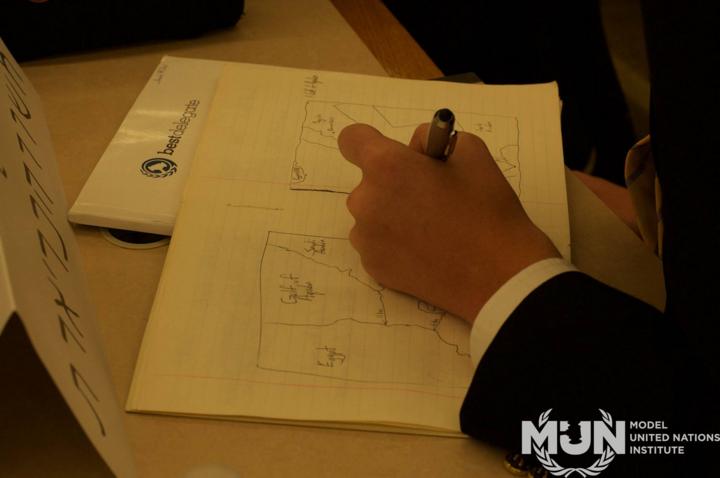![]()
![]()
Introduction
For years, the fall rankings have been a staple of the North American collegiate circuit, whether it be for inspiration or for motivation. We consistently push for improvement in making our rankings as accurate, detailed, and inclusive as possible. The schools that rank the highest on the list show a consistency in their programming to prepare their delegates to succeed in committees. We hope to showcase the effort and hard work that has been shown repeatedly by club members to bolster the spirit of Model United Nations.
With that said, Best Delegate recognizes that the true value of Model UN goes far beyond awards, and that these rankings are only one of many different ways to recognize teams for the hard work they have put in. We value learning, diplomacy, creativity, and the creation of global citizens as far more vital aspects of the activity. In order to highlight these and other definitions of success in MUN, we highly encourage readers and MUN enthusiasts to send us accounts of their MUN clubs and conferences as well. If you would like your team to be featured on the Best Delegate Facebook page, feel free to send an email to genevieve.pool@nullbestdelegate.com.
We also recognize that not every conference or school chooses to focus on the competitive aspect of Model UN. These rankings only capture what we call the “World Division” of student-led teams that attend conferences organized by university clubs, and most of these conferences are competitive in nature and significantly feature crisis committees. It does not capture the successes of the “National Division” of advisor-led programs that attend conferences organized by nonprofit organizations, which are more academic in nature and primarily focus on traditional UN committees.
Methodology and Disclaimers
The Weighted Score Methodology is the same as in previous years. The article above also provides insight into the purpose and philosophy behind the rankings. However, we made two changes to the weightings this year.
First, changes were made to the weightings for each type of award in order to reward delegates for their hard work and to acknowledge that oftentimes, the difference between award winners is too close to value one award significantly higher than the other. Best Delegates are now worth 5 points, Outstanding Delegate is worth 4, Honorable Mention is worth 3, and Verbal Commendation is worth 2. This 5-4-3-2 weighting also reflects a more common practice now on the circuit, which has trended away from the 3-2-1-0.5 weighting that we previously used. Additionally, double delegations as two individual awards, to equally value all delegates.
Second, changes were made to the weightings of each conference so that there is relatively less disparity in value between the largest and smallest conferences while still taking into account a variety of factors for competitiveness: number of delegates in attendance, number of teams who won awards, number of Top 25 teams in attendance, and percent of awards won by each team. The change would end up recognizing teams that won delegation awards or many individual awards at one of the smaller conferences over a team that won a few awards at one of the largest conferences, all else in their resume being equal. Of course, conferences are re-weighted every year anyway as the inputs to each factor change.
Fall conferences were weighted in the following order, although placement in the same tier does not indicate the exact same weight:
- UPMUNC (University of Pennsylvania)
- NCSC (Georgetown University)
- CMUNNY (Columbia University) & BarMUN (Boston University)
- SCSY (Yale University), TrojanMUN (University Southern California), SBIMUN (UC Santa Barbara), UNCMUNC (University of North Carolina), CIAC (Cornell University), and QMUNi (Queen’s University)
- DisCON (Duke University)
A few notes to bear in mind:
- It is important to note that we use aggregate weighted scoring while many conferences use a ratio in their scoring methodology. Please keep in mind these scoring differences as you read the following narratives- our rankings of for example “2nd Place” at a conference is in terms of total weighted awards, and may not match with the Outstanding Large Delegation at that conference.
- Schools that host conferences in the fall are at a slight disadvantage since they cannot compete at their own conference. However, most of the top schools will host a conference at some point, thus balancing out the scoring opportunities for the end of year rankings.
- We can only use data that has been submitted to us by conferences. 305MUN was not included as we did not receive data. Collegiate conferences who wish to have their awards data included in the spring rankings should contact Genevieve Pool at genevieve.pool@nullbestdelegate.com and Elaine Miao at elaine.miao@nullbestdelegate.com.
- All calculations are formulaic and done by the Best Delegate Co-Founder, Kevin Felix Chan, and then manually triple-checked by three members of the Best Delegate team to ensure data integrity and unbiased results.
Credits
Rankings are a huge effort on the part of many members of the Best Delegate team. Editor-in-Chief Elaine Miao’s leadership on both this and the media team have been invaluable. This list would not have been made possible if not for the tireless hours Editor of Best Delegate Content Genevieve Pool put in. Additional thanks go to Abhiram Reddy, our College Media Associate, and Core Team members Kevin Felix Chan, Conna Walsh, and Erik Leiden for their guidance, effort, and hard work.
On behalf of the Best Delegate family, we would like to congratulate the top 75 teams of the Fall season.
#1 The University of Chicago
![]()
For the second year in a row, the University of Chicago put on a dominant performance in the fall semester to claim the #1 spot in the ranking. The team was the best on the circuit by any measure: it won by far the most individual awards, the most gavels, and the most large delegation awards. Its accolades include winning the Best Large Delegation at UPMUNC, the most competitive conference of the semester. It also won the Best Large Delegation award at BarMUN, and the Outstanding Large Delegation award at CMUNNY (though it came in first in terms of weighted score). Lastly, the team placed third at NCSC, where it contended for a large delegation award. Despite its cumulative dominance this semester, the team is not undefeated like in some previous fall semesters, so it will have to put in work to defend its #1 end-of-year rank. UChicago will host ChoMUN in April.
While maintaining a competitive spirit, the UChicago team also tries to emphasize the experience of Model UN by giving as many people as possible a chance to travel. President RJ Ruano had this to say about their fall quarter team: “I love this team and I’m incredibly proud of their performance this season. To embrace the passion for MUN at UChicago, we took more individual delegates to fall conferences this year than we ever have before. I’d like to recognize all of the new members of our team for stepping into this community and doing a stellar job, in addition to the returning members for taking on new challenges while helping foster an environment in which everyone can grow. This team is a family and I look forward to more great times with them this winter!”
#2 Florida International University
![]()
The powerhouse FIU team put in one of its best performances ever to reclaim their title as the #2 ranked team on the circuit, an accomplishment they’ve only had one other time in the fall semester. FIU’s largest success of the semester was their performance at NCSC, where they won the Best Large Delegation award for the first time there over large delegation rivals UChicago, UPenn, and Harvard. Another notable victory was at BarMUN, where they won the Outstanding Large Delegation award behind only UChicago. Lastly, FIU finished in the top 5 at UPMUNC and in the top 10 at CMUNNY. Overall, FIU received the second most individual awards on the circuit while only traveling to the four highest weighted conferences, and tied for the fourth most gavels on the circuit. The team plans to launch a FIUMUN collegiate conference this year.
Florida International University not only has student leaders, but staff mentors as well. Michelle Rosario, former Head Delegate and current Program Director, has seen her team grow and has some encouraging words to share: “FIU is really proud of what our team was able to accomplish this semester. Last spring, we said goodbye to a lot of amazing seniors, however, we were refreshed with incredible incoming lower class-men that shocked up with their natural talents. In addition, our leadership team worked tirelessly to ensure the best for the team pre-conference and post. Our unity and endless support for one another really defines our team culture.”
#3 Georgetown University
![]()
Georgetown edged out UPenn for the third spot on the fall ranking by the equivalent of one award. The team’s strategy was to equally balance quantity and quality throughout the four conferences they traveled to, and they received the fourth most gavels and fourth most individual awards overall. The team placed second or third at every conference it attended. Its best performance was perhaps placing second in terms of weighted score at UPMUNC, where it missed out on a large delegation award by ratio. The team also placed third at CMUNNY and at BarMUN. Finally, the team found success on its first visit to UNCMUNC, winning the Best Small Delegation there. Georgetown also hosted a larger NCSC this year, the second highest weighted conference of the semester.
The Georgetown team worked extremely hard on their travel team, but they also made sure to support each other internally. Conference Coordinator Zac Schroepfer discusses his and his peer leaders’ efforts below: “I could not be prouder of team GU MUN after a semester of hard work and dedication. This year, we took time to re-focus on some of our main priorities, most notably emphasizing the importance of fostering inclusiveness as well as competitiveness as a team. We have implemented recruiting programs, kick-started inclusion in MUN workshops, and re-vamped our training program to not only bring in new delegates, but also to enable them to truly thrive as delegates of team GU MUN. Our team has spent this time also becoming a family both on-campus, and off, and I, personally, cannot wait to see all of the amazing experiences our delegates will have in the Spring semester!”
#4 The University of Pennsylvania
![]()
The University of Pennsylvania kept its place within the top 5 of the ranking with a formidable performance this fall. The team notably raked in the second most gavels on the circuit and the third most individual awards. Its biggest win came at SCSY, where it dominated the conference by winning almost half the gavels possible en route to a Best Large Delegation award. The team also picked up a Best Large Delegation award at CMUNNY. It also put in a top 5 performance at NCSC and a top 10 performance at BarMUN. Finally, Penn IAA hosted UPMUNC, the highest weighted conference in the fall. Its two Best Large victories, coupled with the fact that it already hosted its conference in the fall, signal that it will be a serious challenger to UChicago, FIU, and Georgetown for the top ranking when the spring semester starts.
Head Delegate Noah Levine reflects on his observations on the UPenn Model UN team’s growth throughout the past few months: “Perhaps “family” would be the best word to describe our team. Everyone is always there to support each other, whether it be during or after committee sessions. We also had an incredibly successful recruitment season, and an amazing group of new freshmen and sophomores as a result of that. From CMUNNY to BarMUN to NCSC to SCSY, our team takes MUN to the next level with our “work hard, play harder” mentality. We look forward to a great spring semester and amazing experiences at McMUN, HNMUN, VICS, NYUMUNC and ChoMUN!”
#5 Harvard University
![]()
Harvard placed third or fourth at every conference it attended this fall semester, to enable it to secure its traditional place within the top 5 of the ranking. With each conference it attended, Harvard’s team increased its committee clout a little more. Starting off slow by narrowly missing a delegation award due to ratio at CMUNNY, the team continued on to SCSY, NCSC, and UPMUNC, winning delegation awards at each. Harvard picked up a Best Small Delegation award at SCSY, and then upgraded its team size to win an Outstanding Large Delegation award at NCSC. Harvard’s performance culminated at its Outstanding Large Delegation award at the highly competitive UPMUNC. Overall, the team won the third most gavels and tied for the fifth most individual awards on the circuit.
While we anticipate Boston’s snowstorms to only get worse, Harvard’s delegates can certainly stay thawed with this heartwarming message from head delegates Safa Salem and Jenna Wong: “We could not be prouder of ICMUN for its performance this past semester. We’ve seen our team members really flourish through some newfound partnerships and we hope to continue to expand on that moving forward. Our killer freshman class has rolled in like thunder, and a storm is definitely brewing for the spring semester. We’re super excited to continue building our family on campus and away at conferences, and we can’t wait to see what the spring has in store for us!”
#6 American University
![]()
American University is now on the cusp of the top 5, seizing its highest fall ranking ever this semester after having notched its highest end-of-year ranking ever last year. It also upended the historical order of DC teams, topping GW for the first time. The team’s performance really took off after a top 10 finish at CMUNNY. American won the Best Small Delegation award at BarMUN, where it beat teams like GW, UPenn, and West Point. It also received the Outstanding Small Delegation award at UPMUNC, where it put in a top 5 performance that rivaled some of the best large delegations. And most notably in their hometown, American finished #1 in weighted score at NCSC — better than UChicago, FIU, UPenn, or Harvard — and likely missed out on a delegation award only because of ratio. Overall, it tied Harvard for the fifth most individual awards on the circuit. Despite losing a large senior class last year, this is American’s highest ever ranking, proving that they have created the foundation to be a strong team for years to come.
Head Delegate Zach Bontempo is especially proud of their new class and their potential:. “Over the course of the Fall semester, American University welcomed in an incredibly talented and driven freshman class, which helped to propel our team to one of its best Fall performances in club history. New members, coupled with a more intense training regimen saw improvements at every conference for our team, and led us to two delegation awards at BarMUN and UPMUNC respectively. We are incredibly proud of our new members and veterans alike, and on the heels of this success we are all greatly looking forward to a fun and competitive Spring semester.”
#7 The United States Military Academy at West Point
![]()
While balancing an incredibly rigorous academic experience, West Point managed to travel to five conferences this Fall, the most of any team in top 10. Traditionally one of the best small delegations on the circuit, West Point again won or contended for a small delegation award and placed within the top 10 at every conference it attended. The highlights for the team include winning the Best Small Delegation award at CMUNNY and the Outstanding Small Delegation award at BarMUN. The team only missed out on delegation awards at NCSC and SCSY by ratio as it had a higher weighted score than at least one small delegation award winner, and it put in a solid performance at UPMUNC.
Cadet-in-Charge John Govern reflected on the vital skills their team learned this semester: “It’s been remarkable seeing our team’s delegates develop, learn, and win this semester. Over the fall, West Point Model UN successfully integrated a new roster of different class years into a cohesive team. Attending several conferences and winning Best Small Delegation at CMUNNY, West Point Model UN is a family that I’ve had the privilege to lead thus far. The skills learned and experiences gained in Model UN are invaluable, and we hope to further bridge the civil-military divide at future conferences. I always appreciate the sacrifices our delegates make to attend conferences and their willingness to compete at the highest level. The entire West Point Model UN team looks forward to another semester on the circuit and to compete with our friends and colleagues.” Go Army!
#8 University of California, Los Angeles
![]()
UCLA barely edged out Claremont McKenna by the equivalent of one award to achieve their highest ever ranking and hold on to their “Best in the West” title. UCLA tied for the sixth most gavels on the circuit and also won the most individual awards among West Coast teams, showing both quality and quantity. Their ranking is partially attributed to a dominating performance at TrojanMUN, where they won the Best Large Delegation award. The team also secured the Best Small Delegation award at SBIMUN, and contended for a delegation award at CMUNNY by placing sixth overall. This ranking is notable as UCLA was the only top ten team to travel to only three conferences. They will host LAMUN in the spring.
Travel team director Justin Schmerler had the following to say: “We are incredibly proud of the UCLA travel team’s achievements over the past few months. With best-ever performances at both CMUNNY and TrojanMUN, the team has gone above and beyond our expectations and we could not ask for a better group of delegates. Both our new and experienced delegates have displayed great enthusiasm and talent, and we can’t wait to begin competing in the second half of the year.”
#9 Claremont McKenna College
![]()
Claremont McKenna had a similar level of performance compared to last fall, and finished ranked #9 in the fall for the second year in a row. CMC seemed to rely on a handful of strong performers this year, and therefore was tied for the sixth most gavels on the circuit and has an interesting 7:1 ratio in terms of number of gavels won to Outstanding Delegate awards won. Their performance has resulted in three delegation awards this fall, which is tied with UChicago and Harvard for the most on the circuit. The team won Best Large Delegation at SBIMUN, Best Small Delegation at TrojanMUN, and Best Small Delegation at NCSC. It also won awards at UPMUNC. Apart from its competitive drive, the team also maintained their spirit of building each other up rather than tearing others down, which likely contributed to awards won.
President Emma Houston had this to say about her team: “The fall semester for our team was a whirlwind: from admitting our largest class of new members ever, to having all of our juniors off-campus, as well as adding an additional conference to the fall schedule, we have seen a huge shift in the focus and competitiveness of our team. I am incredibly proud of what the team (especially the new members) have accomplished this semester, and could not be more excited to continue this success next semester with our whole team on campus and with a more rigorous spring conference schedule.”
#10 The George Washington University
![]()
George Washington has lofty goals to hit after breaking into the top 5 to end last year. The team started the fall semester strong to maintain a place in the top 10 of the rankings for the third year in a row. Its best performance came at the beginning of the semester, where it won the Outstanding Small Delegation award at CMUNNY. The team was consistent throughout the rest of the semester, taking home many awards at BarMUN, NCSC, and UPMUNC to stay within or very close to the top 10 at every conference it attended. This consistency to place within the top 10 at only the highest weighted conferences should pay off in the spring, when there are more competitive conferences on the schedule.
Along with a strong Fall performance, the George Washington University also saw its most competitive recruitment season yet, with over 130 eager students vying for around 30 spots. Head Delegate Hari Asuri discusses his experience with his team below: “I’m very proud of all the hard work and effort that GWMUN put into the semester. Particularly, the new class of Colonial Cadets, members of GW’s entry training programming for Model UN, have shown great promise and have worked extremely hard. Additionally, strong returning member performance yielded in great results as well such as our delegation award at CMUNNY this year. As always, to my team, thank you so much for all your hard work! GWMUN is super excited for the second semester and looks forward to starting up the new year at McMUN in January.”
#11 McGill University
McGill is riding on momentum from its best finish ever last year and has sustained their strong performance this fall. The team had two highlights. First, it won the Outstanding Large Delegation award at SCSY, where it finished behind only UPenn and ahead of Harvard and West Point. Second, it received the Outstanding Small Delegation award at NCSC, where it finished ahead of Best Small winner Claremont McKenna and also West Point in terms of weighted score. Lastly, it showed it could compete against the best with a top 15 showing at UPMUNC. McGill has been the highest ranked Canadian university since the inception of the rankings, but this fall is notable in that it has a record of two other peers in the top 25. Next semester, they will host McMUN, one of the largest and most looked forward to conferences of the year.
#12 University of Southern California
After breaking into top 25 for the first time last fall, USC shot up the rankings with its best showing ever this semester. This is particularly noteworthy considering they hosted TrojanMUN this semester. Their best production was at SBIMUN, where they took home the Outstanding Large Delegation award but performed better than Claremont McKenna and UCLA in terms of weighted score. They also brought small teams to the East Coast and picked up awards at UPMUNC and CMUNNY. Despite an unfortunate, hours-long interrogation with the NYPD over misunderstood crisis notes, the USC has proved that they can get through any crisis, real or simulation, and still come out on top.
#13 Indiana University
Indiana showed that its breakthrough into the top 25 last year was no fluke, and took the circuit by storm this Fall to continue their upward trajectory in the rankings in the six years since the program started. In their self-described best semester ever, they contended for delegation awards at both NCSC (placing sixth overall) and BarMUN (placing fourth overall). And to show the team could compete against the best, it placed within the top 15 at UPMUNC. IU is the highest ranked team that has not secured a delegation award yet. They are also now the highest ranked team from the Big Ten.
#14 Florida State University
Florida State consistently won awards at four conferences this fall, and seems to have a balanced team of many individuals winning awards at each conference (as opposed to relying on a few gavel winners). The team was able to take home the Best Large Delegation award at UNCMUNC by beating Tennessee by ratio. The team put in a top 10 finish at NCSC and likely contended for a delegation award there. And finally, the team won awards at BarMUN and UPMUNC to complete its fall schedule.
#15 Emory University
Emory maintained a spot in the top 15 of the fall rankings despite reducing their fall travel itinerary by one conference. Emory seems to be a top-heavy team, with a number of gavels that rival most of the top 10 teams on the circuit. Emory’s best performance of the fall was dominating their fellow Southern teams at DISCon in route to a Best Large Delegation award there. The team also consistently won multiple awards at UPMUNC, BarMUN, and UNCMUNC. They will host MUNE in the spring.
#16 University of California, Berkeley
UC Berkeley is the highest ranked team to have not received a gavel this season, securing their spot instead by racking up many individual awards. The team seemed to change strategies this year and focused on winning more awards at fewer conferences. The majority of the team’s awards came from a stellar performance at TrojanMUN, where they won the Outstanding Large Delegation award. The team also put in top-15 performances at UPMUNC and CMUNNY. They will host UCBMUN in the spring.
#17 Princeton University
Princeton has re-emerged as a top 25 team after a one-year dip in the rankings. Princeton is a team that has traditionally had a travel-heavy schedule, and this year has been no exception with the team winning awards at four conferences in the fall and a pair of delegation awards from Ivy League conferences. Their most impressive showing was at UPMUNC, where they won the Best Small Delegation award. Princeton also received the Outstanding Small Delegation award at SCSY. In addition, the team also won awards at NCSC and CMUNNY. Princeton will host the Princeton Diplomatic Invitational (PDI), the successor to PICSim, in the spring.
#18 Columbia University
The peak of Columbia’s performance came right at the end of the fall semester, when it placed sixth overall at UPMUNC and contended with American and Princeton for a small delegation award there. Columbia also won a Best Small Delegation award at CIAC, and got on the scoreboard at NCSC. This is Columbia’s best fall performance in the past few years, and the team has an upward trajectory in the spring as it hosted CMUNNY during the fall.
#19 New York University
NYU put on a solid showing this fall with a team of predominantly new members as many of their talented seniors have graduated. They traveled to four top conferences, and gavels made up over a quarter of their total awards at them. Their stronger performances were at nearby CMUNNY and SCSY, where they placed in the top 10 at both. The team also won awards at UPMUNC and NCSC. In the Spring, they will host NYUMUNC, a staple of crisis committees on the college circuit.
#20 Queen’s University
Queen’s University breaks into the top 25 for the first time this year after having been in the top 50 for many years. Their ranking is buoyed by winning the Best Large Delegation at CIAC this fall, which was weighted relatively higher than in previous years in the re-weighting of the conferences. The team also won awards at UPMUNC. Notably, Queen’s University also hosted QMUNi this fall, which has increased in size to rival most of the East Coast conferences and therefore increased in weighting.
#21 College of William & Mary
William & Mary maintains its place in the top 25 with competitive traveling scheduling, where they tied with West Point for attending a fall-high five conferences. Although the team did not win any gavels, they steadily increased their individual awards won as the conferences got more competitive throughout the semester, taking home awards at CMUNNY, BarMUN, SCSY, NCSC, and UPMUNC. They managed to stay competitive even with an almost entirely first-year team at UPMUNC due to their high school conference, WMHSMUN, being hosted the same weekend. The team will host &MUN in the spring.
#22 University of Tennessee, Knoxville
The University of Tennessee, Knoxville breaks into the top 25 for the first time after a steady rise up the rankings in the past two years. Their ranking is primarily due to their success at UNCMUNC, where they won the Outstanding Large Delegation award but had a higher weighted score than Best Small winner Georgetown and Best Large winner Florida State. The team also won awards at NCSC. Tennessee is the highest ranked team from the SEC as neighboring Vanderbilt missed the top 25 this fall.
#23 Michigan State University
Michigan State remains a staple on the top 25 and a fantastic representative of the Midwest. Their best showing of the year was at UPMUNC, where they placed eighth and clinched three gavels, tied for the fourth most of the conference. This was a significant improvement from their performances earlier in the semester at BarMUN and NCSC, and the Spartans proved they are a powerful competitor with the ability to contend for a delegation award against the best teams on the circuit.
#24 University of North Carolina at Chapel Hill
UNC Chapel Hill makes its first re-appearance in the rankings since finishing #25 during the 2015-2016 school year. UNC won awards at small and big conferences alike, with a consistent number of awards won at DISCon, BarMUN, and NCSC. Gavels made up a third of their awards, showing that the team has a few top delegates. The team placed in the top 15 at NCSC and BarMUN, and contended for a delegation award at DISCon. They also hosted UNCMUNC, which grew significantly this year and was weighted relatively higher than in previous years.
#25 Wilfred Laurier University
Wilfred Laurier helped set a record-high of three Canadian universities in the top 25 rankings. The team took home the Best Large Delegation award at QMUNi this fall, which was weighted relatively higher than in previous years in the re-weighting of the conferences. A majority of the awards that Wilfred Laurier won at QMUNi were gavels, showing that this team has strong delegates. They edged out Carleton University for the Best Large Delegation at QMUNi, and therefore were able to make it into the top 25 for the first time over the same team.
Top 50 Outstanding Delegations (Alphabetical Order)
The five teams closest to breaking into the Top 25 were: Carleton University, Tufts University, Northeastern University, Cornell University, and Clark University, respectively.
Boston University
Carleton University
Clark University
College of the Canyons
Cornell University
Elon University
Northeastern University
Ohio State University
Pomona College
Royal Military College (RMC)
Ryerson University
Seton Hall University
Tufts University
United States Air Force Academy
University of California, Davis
University of California, Santa Cruz
University of Connecticut
University of Florida
University of Miami
University of Michigan
University of Texas, Austin
University of Toronto
University of Virginia
Vanderbilt University
Yale University
Top 75 Honorable Mention Delegations (Alphabetical Order)
Bates College
Bowdoin College
Brown University
Carleton College
Case Western Reserve University
Concordia University
George Mason University
Indiana University – Purdue University Indianapolis
Ithaca College
John Abbott College
Johns Hopkins University
Kutztown University of Pennsylvania
Miami University
Middlebury College
North Carolina State University
Northwestern University
Stanford University
Tulane University
University of Alabama
University of Cincinnati
University of Illinois
University of Maryland
University of New Mexico
University of Toronto Mississauga
Victor Valley College
***
Congratulations to all, and we look forward to highlighting your future achievements!

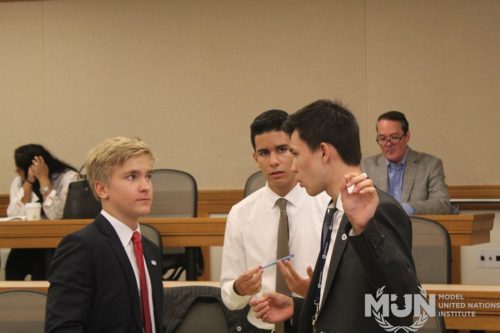





 Elaine Miao
Elaine Miao Curan VanDerWielen is a Sophomore at Clark University, where he studies International Development and Geography, with a minor in Political Science. Ever since his first Model UN conference, Curan has always held a passion for MUN both as an activity and a community. In high school, Curan co-founded a regional middle school level conference, served as a student advisor for a local middle school team, enrolled in the MUN Institute in 2015, and was later appointed Executive President of EISJMUN in Dubai, UAE. Last year, he was a Crisis Director at ClarkMUN VIII, and now dually serves as Director of Operations at ClarkMUN XI and as a Conference Management Officer at WIMUN NYC. He’s extremely excited to be working for Best Delegate again after his serving as a MUN Mentor at the MUN Institute this past summer. In his spare time, Curan enjoys traveling, drinking lots of tea, playing video games, and skiing.
Curan VanDerWielen is a Sophomore at Clark University, where he studies International Development and Geography, with a minor in Political Science. Ever since his first Model UN conference, Curan has always held a passion for MUN both as an activity and a community. In high school, Curan co-founded a regional middle school level conference, served as a student advisor for a local middle school team, enrolled in the MUN Institute in 2015, and was later appointed Executive President of EISJMUN in Dubai, UAE. Last year, he was a Crisis Director at ClarkMUN VIII, and now dually serves as Director of Operations at ClarkMUN XI and as a Conference Management Officer at WIMUN NYC. He’s extremely excited to be working for Best Delegate again after his serving as a MUN Mentor at the MUN Institute this past summer. In his spare time, Curan enjoys traveling, drinking lots of tea, playing video games, and skiing.
 Hello everyone! My name is Jocelyn Koelb and it is truly an honor to be serving as a Media Associate on the Best Delegate Media Team. I am currently a homeschooled high school junior from New Hampshire, and I serve as the president of my Model UN team at Mosaic Explore. I started Model UN in eighth grade, and have been in love with it ever since. Ever since I started, Best Delegate has been my main source of information for training, strategy, and everything in between. Two summers ago, I decided I wanted to take my performance as a crisis delegate to the next level, so I attended the Best Delegate MUN Institute Crisis program. I had an incredible time, and have won numerous awards in crisis committees since then. Outside of Model UN, I love anything science-related, and I was lucky enough to spend this summer researching cancerous transcription factors at a MIT lab. In the future, I hope to pursue a medical degree and continue my Model UN career on the college circuit. I’m looking forward to working with Best Delegate and the Media Team this year!
Hello everyone! My name is Jocelyn Koelb and it is truly an honor to be serving as a Media Associate on the Best Delegate Media Team. I am currently a homeschooled high school junior from New Hampshire, and I serve as the president of my Model UN team at Mosaic Explore. I started Model UN in eighth grade, and have been in love with it ever since. Ever since I started, Best Delegate has been my main source of information for training, strategy, and everything in between. Two summers ago, I decided I wanted to take my performance as a crisis delegate to the next level, so I attended the Best Delegate MUN Institute Crisis program. I had an incredible time, and have won numerous awards in crisis committees since then. Outside of Model UN, I love anything science-related, and I was lucky enough to spend this summer researching cancerous transcription factors at a MIT lab. In the future, I hope to pursue a medical degree and continue my Model UN career on the college circuit. I’m looking forward to working with Best Delegate and the Media Team this year!



 Zoey Fisher is a sophomore at David Posnack Jewish Day School in South Florida. Since before her eight grade year, Zoey has attended Best Delegate Model United Nations Institute every summer, and it is there that her passion for MUN was born. She has served as Head Delegate for her school’s Model UN team since her Freshman year, and has single-handedly trained over 30 beginner delegates to compete at the international level. Outside of school, Zoey is the co-founder and president of South Florida Model UN, an independent team that competes on the local level. When she is not MUN-ing, Zoey enjoys creative writing, participating in her school’s musical (even though she can’t sing or dance), swimming on the swim team, and volunteering at the hospital. Last year Zoey served as a Media Associate for Community Development and she can’t wait to continue writing for Best Delegate, this time as an associate for training!
Zoey Fisher is a sophomore at David Posnack Jewish Day School in South Florida. Since before her eight grade year, Zoey has attended Best Delegate Model United Nations Institute every summer, and it is there that her passion for MUN was born. She has served as Head Delegate for her school’s Model UN team since her Freshman year, and has single-handedly trained over 30 beginner delegates to compete at the international level. Outside of school, Zoey is the co-founder and president of South Florida Model UN, an independent team that competes on the local level. When she is not MUN-ing, Zoey enjoys creative writing, participating in her school’s musical (even though she can’t sing or dance), swimming on the swim team, and volunteering at the hospital. Last year Zoey served as a Media Associate for Community Development and she can’t wait to continue writing for Best Delegate, this time as an associate for training! Media Associate of Training Content
Media Associate of Training Content

 Jack Tapay
Jack Tapay

 Multimedia Manager
Multimedia Manager Conference Database Manager
Conference Database Manager













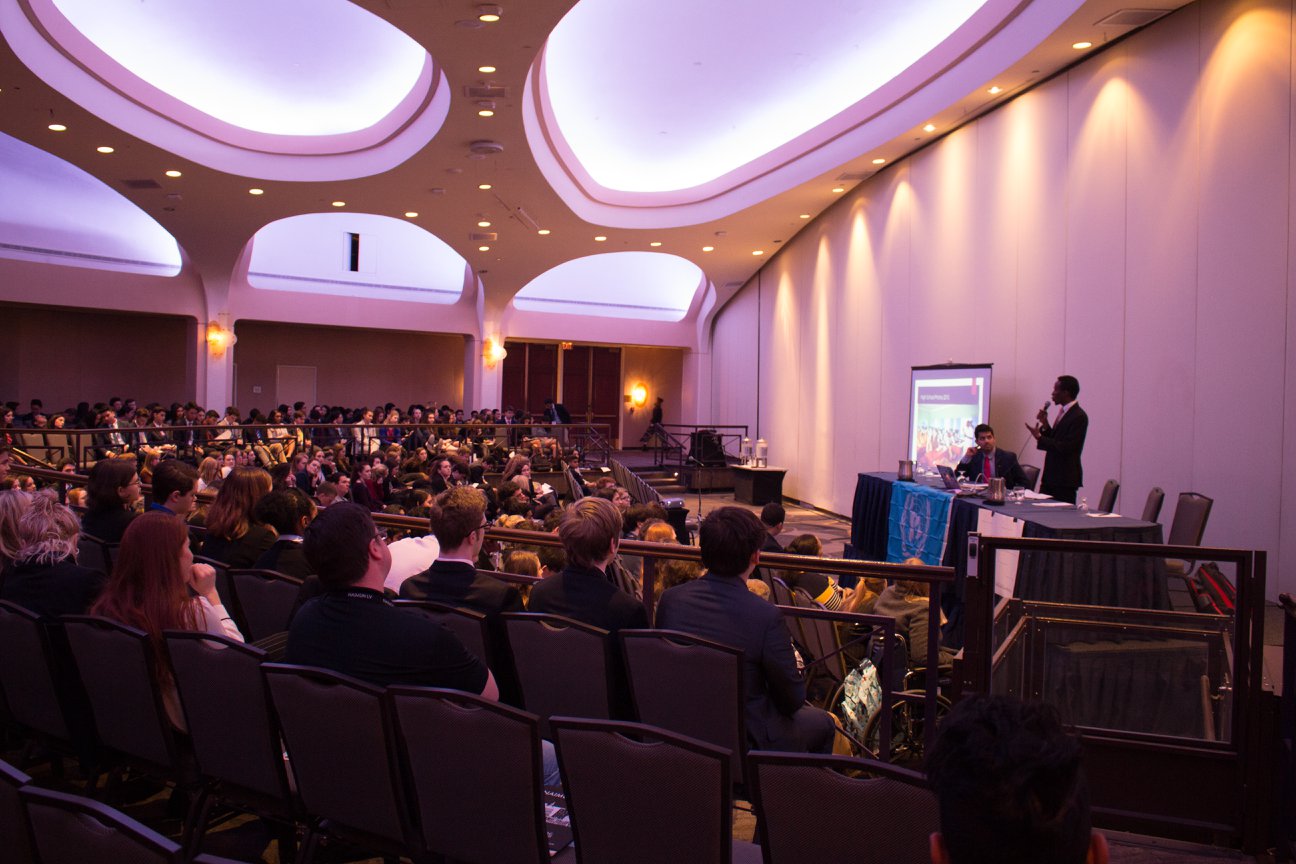
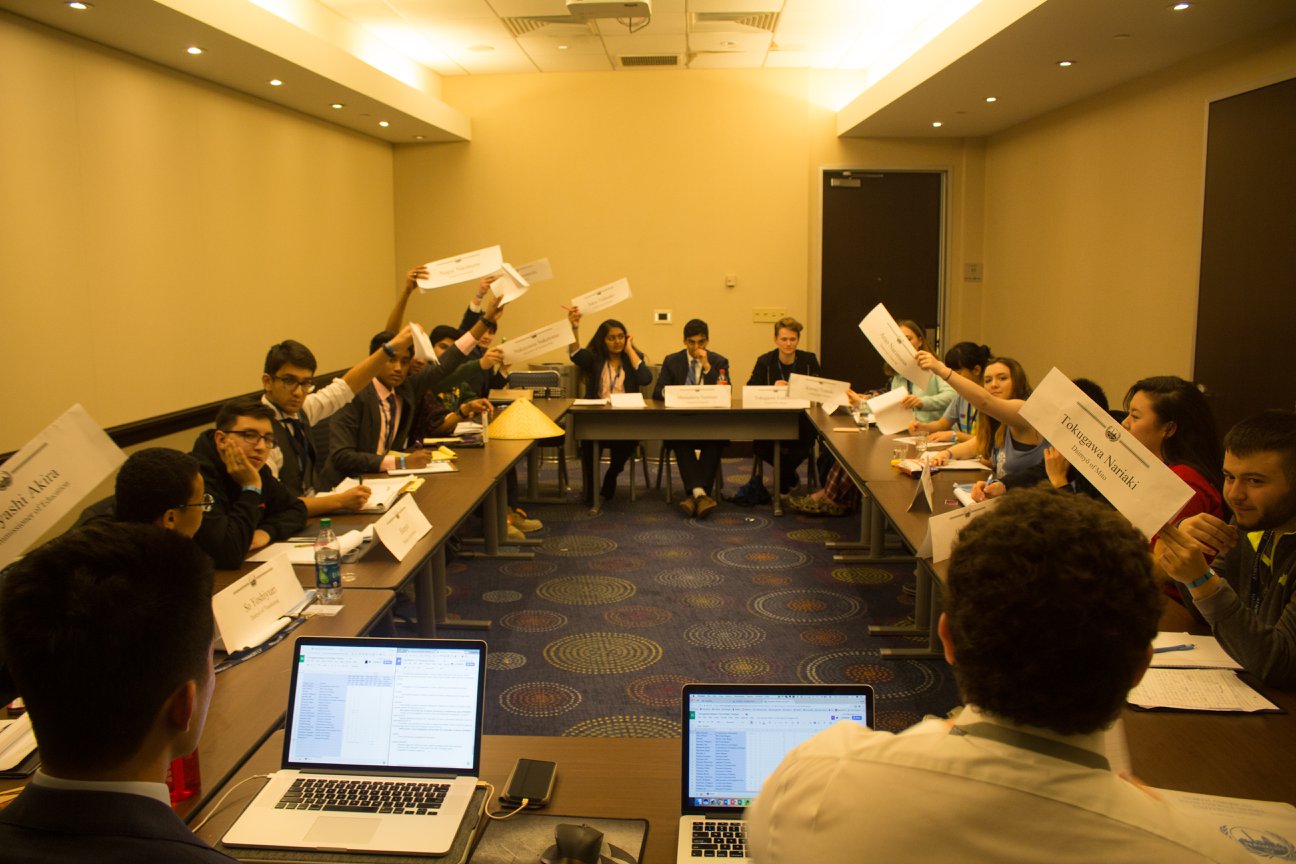




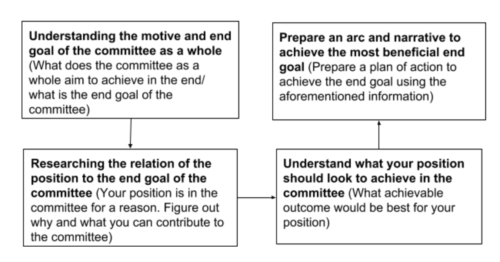
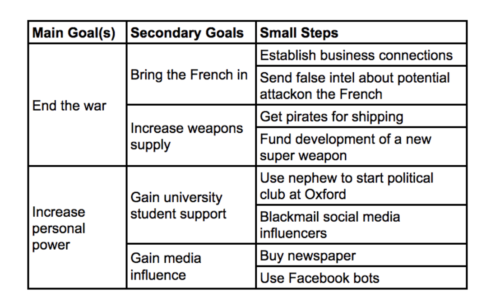

















 The fellowship term for both Diplomacy Fellows and Residential Counselors is from June 16 – August 3 or August 10, 2019 depending on your choice for the final MUNI program location. Staff must be available during the entire fellowship term. All staff will start in Washington, DC being trained by Best Delegate’s staff. Following the conclusion of staff training, staff will travel as a team to teach and supervise programs throughout the summer.
The fellowship term for both Diplomacy Fellows and Residential Counselors is from June 16 – August 3 or August 10, 2019 depending on your choice for the final MUNI program location. Staff must be available during the entire fellowship term. All staff will start in Washington, DC being trained by Best Delegate’s staff. Following the conclusion of staff training, staff will travel as a team to teach and supervise programs throughout the summer.




